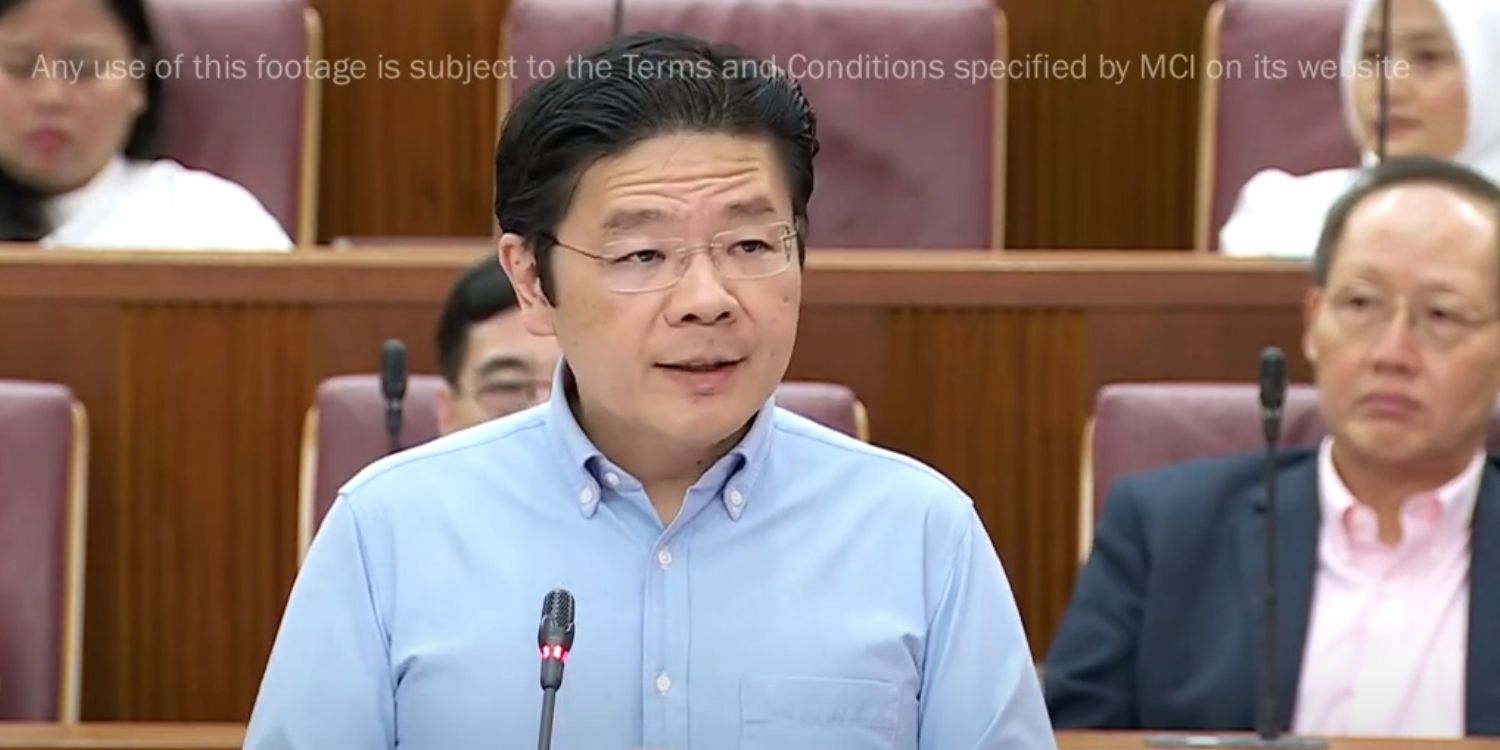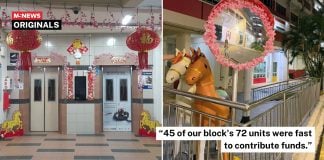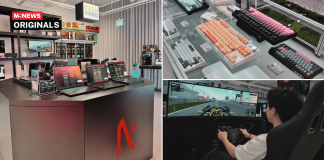Lawrence Wong Says Singapore’s Concept Of Meritocracy Is ‘Too Narrow’, Calls For Mindset Refresh
Deputy Prime Minister (DPM) Lawrence Wong recently spoke about Singapore’s concept of meritocracy, calling for a refresh on the nation’s mindset about schools and grades.
He also shared plans to upgrade SkillsFuture and called for more support for lower-wage essential workers.
This is not the first time Mr Wong has addressed the country’s meritocracy system.
Last year, he acknowledged that there is a need to improve the current system and recognise the importance of different professions.
Lawrence Wong Calls Meritocracy System To Be Compassionate, Urges Respect For All Professions
Singaporeans face pressure to get into ‘best’ schools
In his speech at the debate on the President’s Address on Monday (17 Apr), Mr Wong touched on several topics, including the challenges within Singapore’s education system.
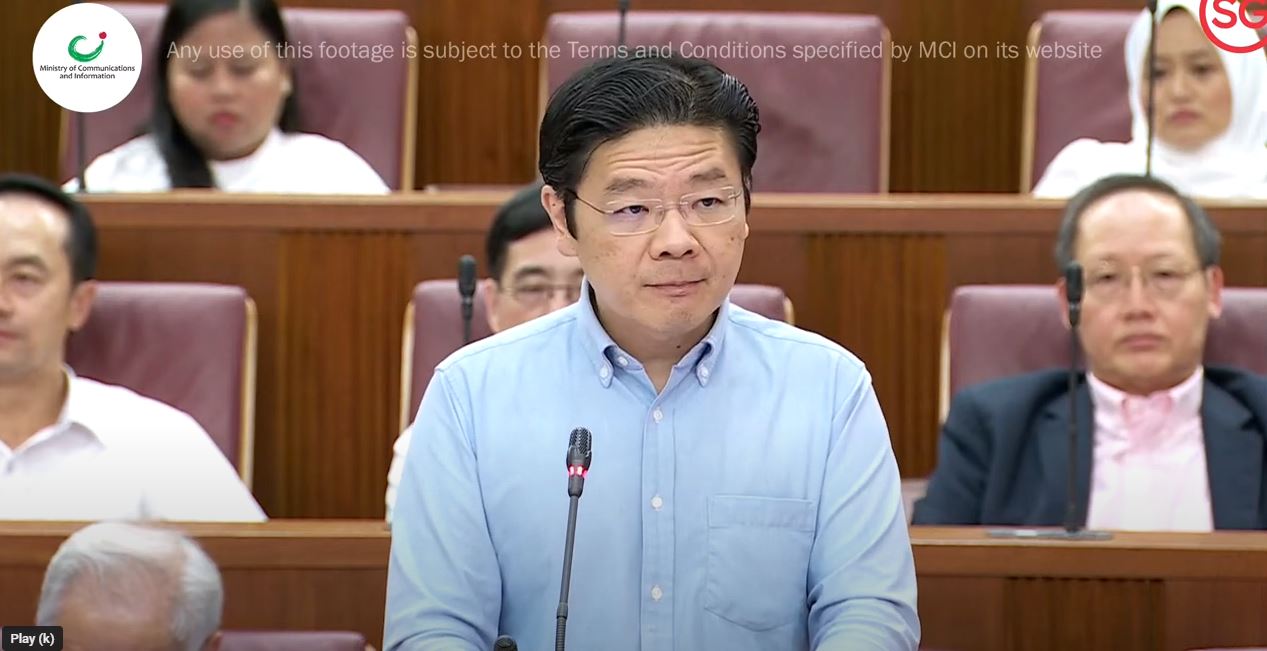
Source: MCI Singapore on YouTube
He stated,
Our concept of meritocracy remains too narrow.
Mr Wong then pointed out that from a young age, many Singaporeans feel the pressure to get into “what they perceive to be the best schools, so that they can get the best university places”.
Such anxiety extends to the parents too, with some doing whatever they can to get their children into such “brand-name” institutions.
However, Mr Wong voiced his agreement with former DPM Heng Sweet Keat’s declaration that “every school is a good school”.
This means that no matter which schools students attend, “they will receive a good education, and they will be well supported by their teachers”.
Need to refresh mindsets about schools & grades
The DPM and Minister for Finance went on to say that, at the end of the day,
We are more than our grades; we are more than the schools we go to.
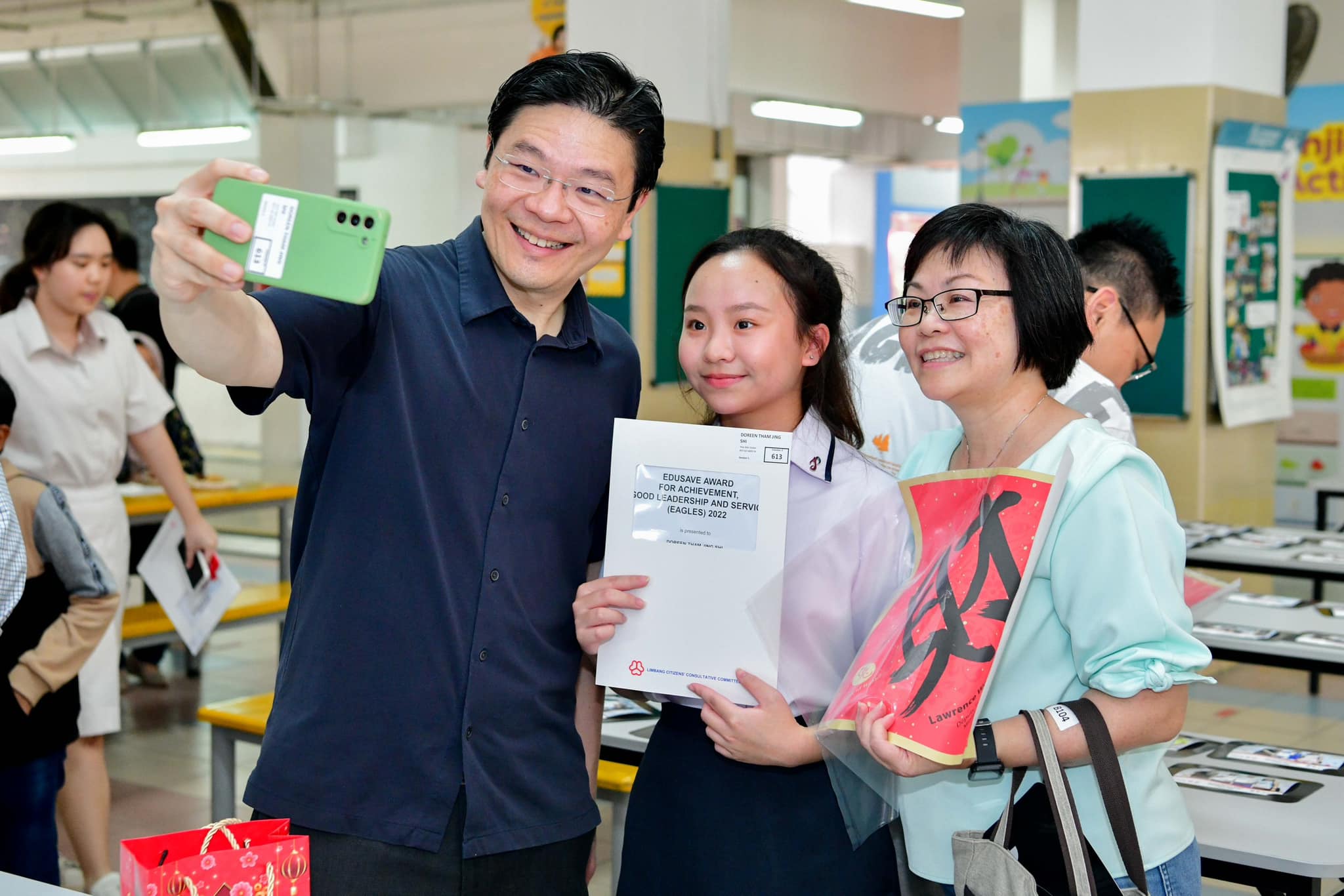
Source: Lawrence Wong on Facebook
He noted that the country has made significant progress in this area, such as by abolishing PSLE T-scores.
This will soon apply to the labels of N(T), N(A), and Express streams, which will make way for full subject-based banding.
“We hope these moves will go some way to remove the stressors in our education system,” said Mr Wong. “But more importantly, we hope they will signal to all in society that we are serious about refreshing our system.”
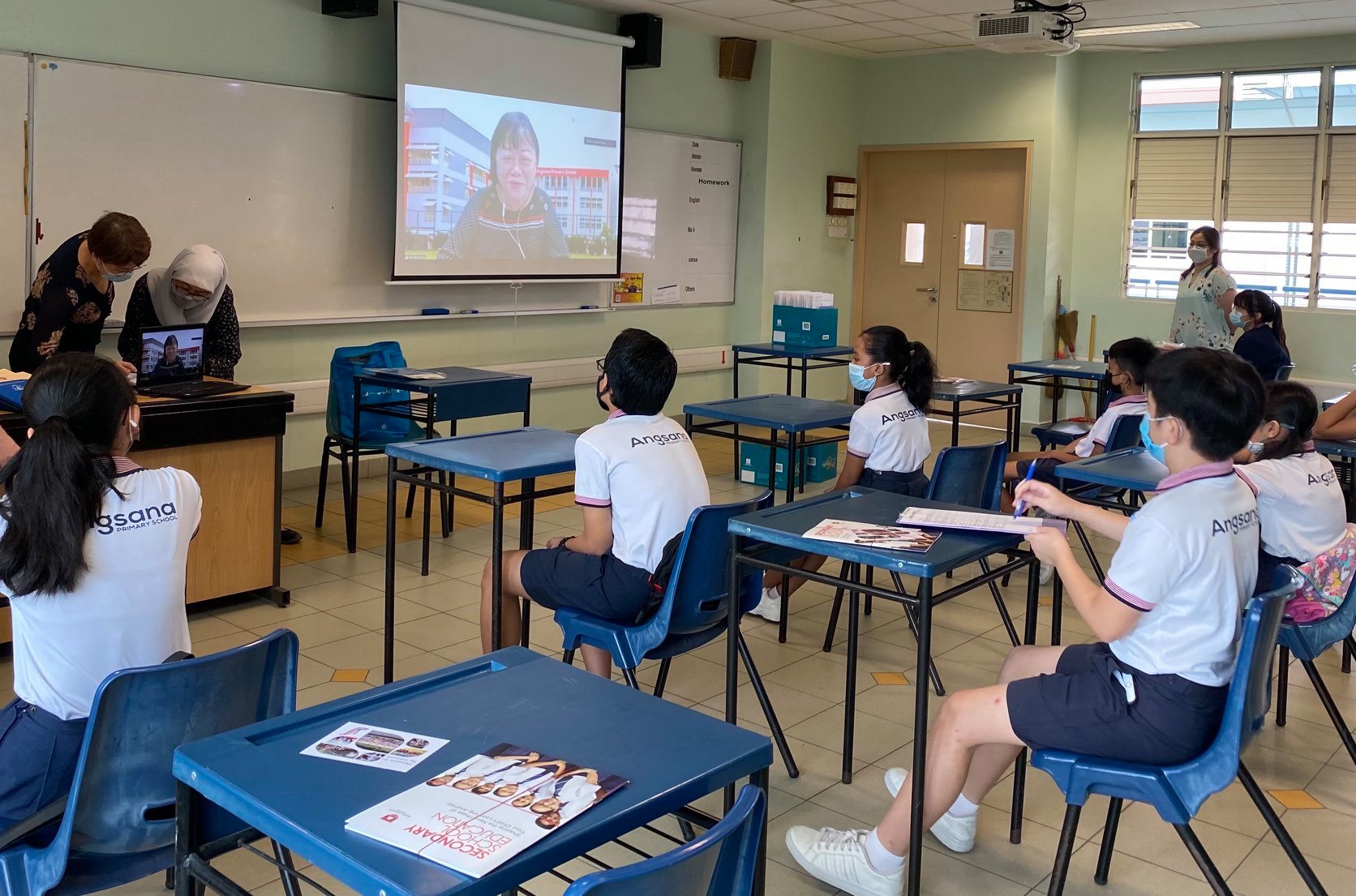
Source: Ministry of Education, Singapore on Facebook
A refresh in mindsets about schools and grades is something he hopes everyone will take seriously.
Although it may not be possible to alter something that’s “become so ingrained in our nature”, Mr Wong called on Singaporeans to be the change they want to see.
This includes giving oneself and one’s children “more breathing space to discover and develop their diverse talents, and to maximise their potential”.
Early formal education not endpoint of meritocracy
In order to achieve this, there must be a “refreshed meritocracy”, as well as the recognition that formal education early in life is not the endpoint of Singapore’s meritocracy.
While the skills journey may begin in schools, it does not end with schools.
Instead, this refreshed meritocracy must be a continuous one and give everyone the chance to “try again, do better, and move forward in life, years after leaving school”.
Education, Mr Wong noted, cannot be confined to the first 25 years of someone’s life.
“Learning must be a continuous journey, for the whole of our lives.”
Major changes to strengthen SkillsFuture
Mr Wong went on to announce some major changes to strengthen SkillsFuture, which was launched in 2015.
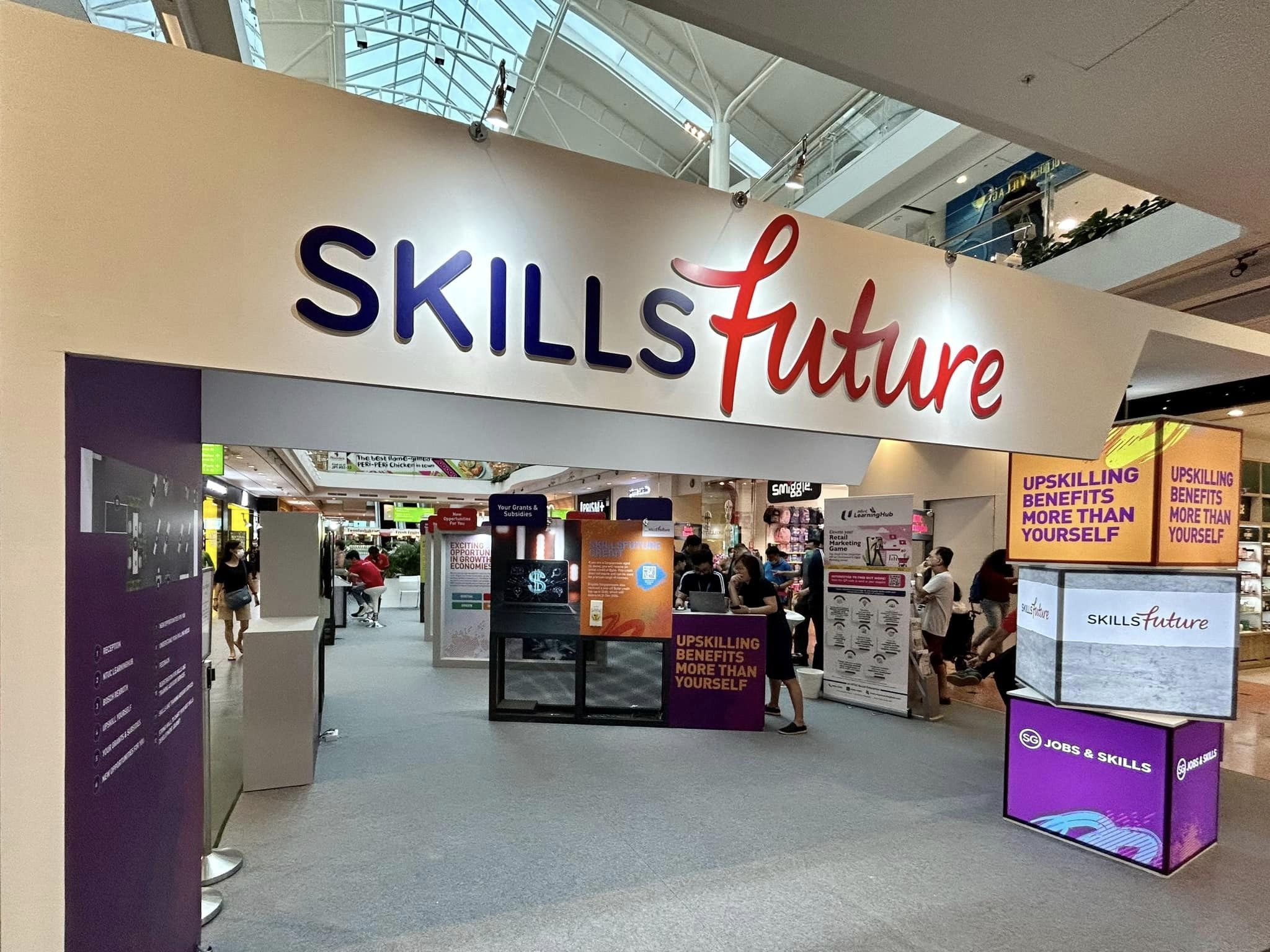
Source: SkillsFuture SG on Facebook
Steps that the Government aims to take include:
- Reducing costs
- Lowering barriers to training
- Working with industry partners to come up with effective training programmes
- Having courses that are better curated and vetted
It will also have discussions with tripartite partners on how there can be better support for workers to take time off to train.
Not only will this help the workers as individuals, but businesses can benefit as well.
Additionally, Mr Wong pointed out that employers should place more emphasis on hiring skills than credentials. They must also invest in their employees’ development.
“With this new approach to skills, how well you did in school should not define the opportunities you can unlock, nor should it determine your entire life,” he said.
You are not stuck at your highest formal educational level attained; you can update your skillsets, pivot to new careers, seize new opportunities, and keep moving forward in life.
Mindset shifts not enough for change
That said, just having the right mindset and saying the right thing isn’t enough.
“Our economic structures, remuneration, and career prospects in various professions must also be consistent with what we value,” Mr Wong stressed.
This includes assuring ITE and polytechnic graduates that their pay and career prospects “will not be too far below” that of those who attended university.
There must also be more support and opportunities for lower-wage essential workers.
While this means that consumers must be prepared to bear a higher cost for goods and services, Mr Wong said that “all will gain when even the most vulnerable amongst us become better off”.
We will become a better people, a more just and a more equal society.
Have news you must share? Get in touch with us via email at news@mustsharenews.com.
Featured image adapted from MCI Singapore on YouTube.
